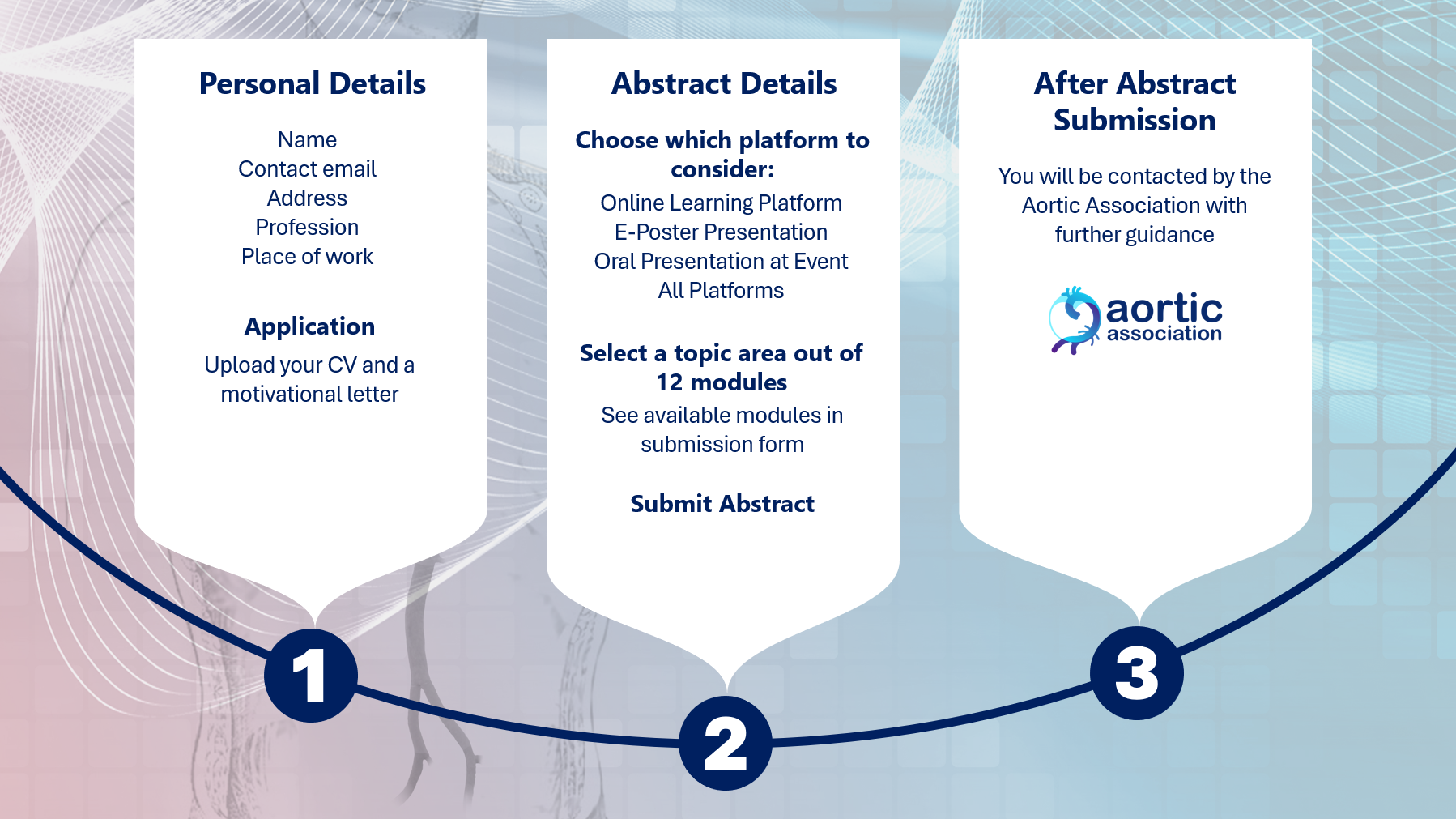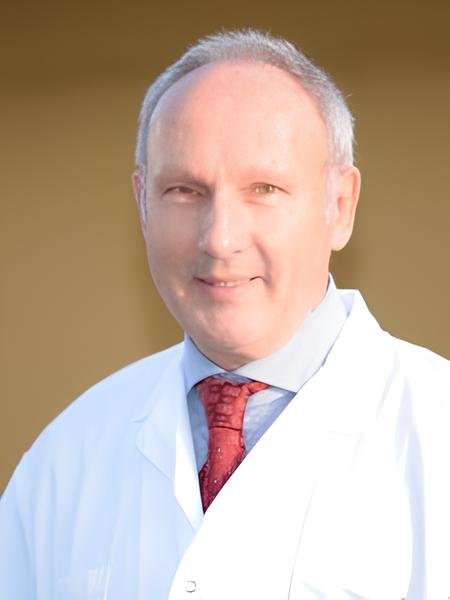
CALL FOR ABSTRACTS!
Case Based Learning (CBL)
Submit your Abstract
We are excited to announce an opportunity for you to contribute to our upcoming Case-Based Learning (CBL) activities for in-person seminars and our expanding online library. We are actively seeking case submissions that can enhance the educational experience in the field of aortic treatment procedures.
Authors can submit their abstracts for the following options:
Online Learning Platform:
Selected abstracts will be featured on the Online Learning Platform, providing wide access to the research community.
E-Poster Presentation during the CBL Seminar 2025:
Abstracts can be presented as electronic posters (E-Posters) during the CBL Seminar 2025, available for viewing by all attendees throughout the seminar.
Oral Presentation at the CBL Seminar 2025:
Preselected abstracts will be chosen for oral presentations, allowing authors to present their research in person and engage with an international audience.
Submission Options
Submissions for the CBL Seminar 2025
Abstract Submission closed!
Deadline for submitting Abstracts:
February 21st 2025Course directors selection until:
March 10thSubmitting finished Powerpoint slides for review:
March 20th
All accepted Abstract Presentations receive Free Registration to CBL Seminar 2025!
—> Attendance required: An onsite participation at the seminar is required for all authors whose abstracts have been accepted for the presentation at the CBL Seminar 2025, regardless of the presentation format.
Submission Guidelines
Include a short letter of motivation
Include CV
Abstracts must be in English
Abstract Submission Process
CBL Cases
Below we provide an overview of the topics for which cases can be submitted. The already existing cases are linked to the corresponding courses.
-
1. Open aortic root repair
2. Open aortic root replacement
3. Endovascular aortic root repair
4. Complication and preventive management
-
1. Open replacement
2. Total endovascular repair
3. Hybrid repair
4. Complication and preventive management
-
1. Open arch repair (elephant trunk)
2. Open arch repair (frozen elephant trunk)
3. Open arch repair (any repair with additional techniques, e.g. non-covered stents)
5. Hybrid arch repair (Debranching/Rerouting and TEVAR)
6. Complication and preventive management
-
1. Open thoracoabdominal repair
2. Hybrid thoracoabdominal repair
3. FEVAR / BEVAR
4. TEVAR
5. Complication and preventive management
-
1. Open repair
2. EVAR
3. Complication and preventive management
-
1. Open aortic treatment
2. Branched iliac artery repair
3. Other approaches
4. Complication and preventive management
-
Complication and preventive management
-
Complication and preventive management
-
1. Aortic Infections
1a. Native and prosthetic infections
2. Heritable thoracic aortic disease [HTAD])
3. Inflammatory Aortitis
4. Luminal Thrombosis
5. Complication and preventive management
-
1. Kommerell’s diverticulum
2. Coarctation
3. Others
4. Complication and preventive management
-
1. Heart
2. Lungs
3. Brain
4. Spinal cord
5. Viscerals and renals
6. Peripheral
7. Complication and preventive management
-
Learning by Sharing
Why should I participate?
Share your experiences with your colleagues on a global platform
Become part of a community dedicated exclusively to the ORGAN AORTA
Gain global visibility in the community
Be instrumental in the development of accredited continuing education as a faculty member
Submit your case abstracts to be part of this exciting educational initiative. Your participation will help us continue to provide high-quality, peer-reviewed content that benefits the entire aortic treatment community.
Join us in making the Aortic Association’s continuing education initiative a valuable global resource for all.
Scientific Chairs
Jürg Schmidli
Prof. Dr.
Chairman
Aortic Association
Bern, Switzerland
Martin Czerny
Prof. Dr.
Vice-Chairman
Aortic Association
Freiburg, Germany
Andreas Martens
Prof. Dr.
Secretary Scientific Affairs
Aortic Association
Oldenburg, Germany





